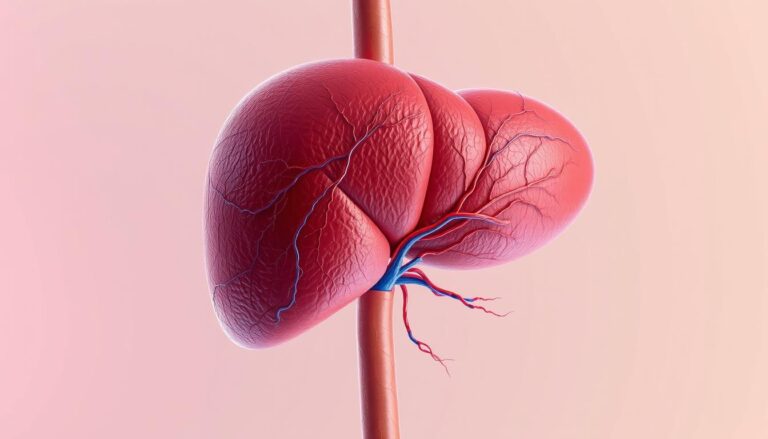Morning Habits That Improve Hormone Balance
Did you know that 80% of successful people say their morning habits help them stay focused and clear-minded? But there’s a secret. These habits also help control your energy and cravings for snacks at night.
Your body doesn’t care if you wake up early or hit snooze a lot. What matters is being consistent and sending the right signals. Think of hormones as messengers that talk to each other all day. Your morning routine is like their daily meeting.
Creating a morning routine can make a big difference. By starting your day right, you can improve your mental health. Simple habits can help balance your hormones. This means better sleep, more energy, and fewer mood swings.
Key Takeaways
- Your morning routine acts as a conductor for your hormonal orchestra, setting the tone for your entire day
- Simple daily practices can naturally regulate blood sugar, cortisol, and other key hormones without major life overhauls
- Consistency matters more than perfection when it comes to hormonal wellness and endocrine function
- Morning choices create ripple effects that influence energy levels, mood, metabolism, and sleep quality
- Small, doable changes in your morning routine can lead to significant improvements in overall hormonal health
Understanding Hormone Balance
Hormones are like your body’s secret messengers. They work every day, from waking you up to helping you sleep. Learning about them is key to daily habits for hormone health that really help.
What Are Hormones?
Hormones are special chemicals made by your body. They travel through your blood, sending messages to your cells and organs.
Your hormone system is like a big orchestra. Each hormone has its own role, but they all need to work together. If one part is off, the whole system suffers.
Here’s what hormones control in your body:
- Metabolism and energy levels throughout the day
- Mood and mental clarity that affect your daily performance
- Sleep cycles that determine how rested you feel
- Appetite and weight management systems
- Reproductive health and monthly cycles
Why Hormone Balance Matters
When hormones are balanced, you feel great. You wake up feeling refreshed and have steady energy. You handle stress well and feel strong.
But if hormones are off, things get tough. You might feel tired all the time. Your mood can change fast, from happy to upset.
Balanced hormones also help your health in the long run. They support a healthy weight, boost your immune system, and keep your heart healthy. That’s why natural ways to optimize hormone levels are so important.
Common Hormonal Imbalances
Many people have hormone imbalances without knowing it. These problems often start slowly, making them seem like just stress or getting older.
The most common hormonal imbalances include:
- Thyroid disorders that affect your metabolism and energy
- Insulin resistance that impacts blood sugar and weight
- Cortisol imbalances from chronic stress
- Reproductive hormone issues like PCOS or PMS
- Sleep hormone disruptions that affect rest quality
The good news? Your morning routine can help all these areas. Simple changes in your morning can send positive signals to your body, helping balance hormones naturally.
Your body wants to feel good and work well. Sometimes, it just needs the right daily habits to get back on track.
The Importance of Morning Routines
Mornings are like a daily reset button. They give you power over your hormones for 16 hours. When you wake up, your body is ready to go.
Cortisol levels peak to help you wake up. This is good when it happens naturally.
The first few hours are key. You can support your body or mess with it. Hormone-regulating morning rituals send important signals. They affect insulin sensitivity and cortisol patterns all day.

Setting the Tone for the Day
Think of your morning routine as setting your body’s internal computer. You’re coding your hormone responses for the day. Starting with intention helps your endocrine system succeed.
Mornings are special because you have control. Before the world demands your attention, you can act first. This leads to stable blood sugar, balanced mood, and energy that lasts.
Morning habits stick because they’re part of your wake-up routine. They need less willpower than evening changes when you’re tired.
How Mornings Impact Hormones
Healthy morning practices for hormonal balance support your nervous system. Daily routines keep blood sugar and insulin steady. They prevent stress from making you always ready to fight or flee.
The FloLiving protocol focuses on morning habits for your nervous system. These practices help hormone function all day, not just mornings. Your body learns to expect consistency, which helps with cortisol and insulin sensitivity.
Consistent morning patterns teach your hormones when to work. This affects how your body makes and uses hormones like thyroid and sex hormones. Your hormones work with you, not against you, for lasting energy and well-being.
Hydration First Thing in the Morning
Drinking water first thing in the morning is very important. Your body was without water for 7-8 hours. It was like running on empty.
The FloLiving protocol says to drink a full glass of water right when you wake up. It’s not just to drink. It helps start your metabolism and wakes up your body gently.

Benefits of Drinking Water
Drinking water makes your body work better. Your liver can clean itself better. This is key for keeping hormones balanced.
Drinking water helps your body move hormones around. Well-hydrated bodies can move hormones well and get rid of extra ones.
Drinking water also helps your metabolism. You don’t need cold water or fancy systems. Just plain water is enough.
Adding Lemon for Extra Benefits
Adding lemon to your water is a nice touch. It helps your adrenal glands work better. This means you can handle stress better.
Lemon also helps with digestion and liver work. But, you don’t need fancy lemon water. Consistency is more important than looks.
Even without lemon, drinking water is good. The goal is to make it easy to drink water every day. This fits well with self-care practices that last.
Keep a glass of water next to your bed or prep your water bottle the night before. Make it easy to drink that first glass of water. Your hormones and energy will thank you in a few days.
Morning Exercise for Balanced Hormones
Starting your day with movement is great for your hormones. It makes you feel good for hours. Choose activities that feel right for you.
Morning exercise wakes up your hormones. It helps control cortisol patterns and boosts testosterone. It’s also good for your thyroid.
Find the right balance in your workouts. Don’t push too hard. Your hormones want consistency and balance.

Types of Exercises to Consider
Choose morning routines that are fun and easy. Here are some good options:
- Strength training with light weights – Builds muscle and supports hormones
- Brisk walking – Improves mood and circulation
- Yoga flows – Reduces stress and supports hormones
- Dancing – Releases happy hormones
- Bodyweight exercises – No equipment needed
The FloLiving protocol suggests gentle activities. If you’re stressed or tired, try gentle stretching.
Listen to your body during your period. Restorative movement is better than intense workouts.
Duration and Frequency
Short workouts are effective. Twenty to thirty minutes is enough for most.
The FloLiving approach suggests 20 minutes of exercise. But, quality is more important than quantity. A 10-minute routine done daily is better than long sessions.
Try to move five to six days a week. This helps balance your hormones. Adjust based on how you feel.
Morning exercise helps manage stress all day. It releases happy hormones. Your hormones will appreciate your effort.
Breakfast Choices That Support Hormone Health
Think of breakfast as your daily hormone reset button. Protein is the key that makes it work. Your morning meal tells your endocrine system how your day should go.
Get it right, and your hormones stay balanced. Get it wrong, and you’re fighting an uphill battle until dinner.
The magic happens when you eat 25-30 grams of protein within 90 minutes of waking up. This isn’t just nutritionist advice. It’s your body’s biological need for amino acids.
Amino acids help make the peptide hormones that control everything. This includes appetite to stress response.
When you start with adequate protein, your blood sugar stays steady. Your hunger hormones chill out. Your energy levels stay consistent instead of crashing by 10 AM.

Protein-Rich Breakfast Ideas
Your protein doesn’t need to be complicated or Instagram-worthy. Consistency beats perfection every time. Here are some hormone-friendly options that actually work in real life:
- Three eggs with spinach — delivers about 18 grams of complete protein plus folate
- Greek yogurt parfait — choose plain Greek yogurt with 20+ grams of protein, add berries and nuts
- Protein smoothie — blend protein powder, nut butter, and frozen fruit for 25-30 grams
- Overnight oats with protein powder — prep ahead for busy mornings
If you typically grab a pastry and coffee, don’t stress. Even adding a hard-boiled egg or handful of nuts to your routine creates positive change. For more healthy breakfast meal prep ideas that save time while supporting your hormones, planning ahead makes all the difference.
Healthy Fats and Carbs to Include
Protein alone won’t cut it. Your hormones need healthy fats and complex carbohydrates to create lasting balance. Think of this trio as your hormone’s dream team.
Healthy fats help your body absorb fat-soluble vitamins and produce hormones. Add avocado slices, nuts, seeds, or a drizzle of olive oil to your morning meal. These fats slow digestion and prevent blood sugar spikes.
Complex carbs provide steady energy without the crash. Berries, oats, sweet potato, or whole grain toast give your brain the glucose it needs while keeping insulin levels stable.
The winning combination? Eggs with avocado on whole grain toast. Greek yogurt with berries and almonds. A smoothie with protein powder, nut butter, and spinach. Your hormones care more about consistent fuel than perfect presentation.
Mindfulness Practices to Start Your Day
Mindfulness isn’t about becoming a zen master overnight. It’s about giving your nervous system a fighting chance. Your morning sets the hormonal tone for everything that follows.
When you start your day with intentional calm, you’re programming your stress response to work with you instead of against you.
Think of mindfulness as your morning insurance policy against hormonal chaos. Just five minutes of intentional breathing or gentle awareness can shift your entire day’s trajectory.
Importance of Reducing Stress
When stress becomes your unwelcome morning companion, your cortisol levels spike and stay elevated. This chronic elevation doesn’t just make you feel frazzled. It actively disrupts your entire hormonal system.
Elevated cortisol triggers a domino effect that impacts everything from your appetite to your sleep quality. When your stress hormones are constantly firing, your body thinks it’s in survival mode. This leads to increased cravings for sugary and high-fat foods, disrupted sleep patterns, and a metabolism that’s working against your goals.

The FloLiving protocol includes meditation and deep breathing techniques to help regulate your nervous system. These aren’t just feel-good practices. They’re scientifically-backed methods for managing your body’s stress response.
Quick Mindfulness Techniques
You don’t need an hour of meditation or a perfectly quiet space to make a difference. Consistency beats perfection every single time. Here are simple techniques that fit into any morning routine:
- Five-breath reset: Take five deep breaths before getting out of bed, focusing on making your exhale longer than your inhale
- Gratitude pause: Write down three things you’re grateful for while your coffee brews
- Body scan stretch: Do gentle neck rolls and shoulder stretches while mentally checking in with how your body feels
- Mindful first sips: Drink your morning beverage slowly, focusing on the taste and warmth
- Intention setting: Spend two minutes visualizing how you want your day to unfold
The key is picking one technique and doing it consistently for at least five minutes daily. Your cortisol levels respond to these small acts of self-care gradually but noticeably. When your stress hormones are more balanced, everything else — from your energy levels to your food choices — tends to fall into place more naturally.
Remember, you’re not trying to eliminate stress completely. You’re teaching your nervous system that it’s safe to relax, even for just a few minutes each morning.
Sunlight Exposure for Energy and Balance
Your body has a special clock inside. It’s smarter than any smartwatch. This clock works best with light and dark.
When you go outside in the morning, you reset your body. This is like hitting a reset button on your hormones.
The FloLiving protocol suggests using natural light or a sunrise alarm. This gentle way works with your body’s natural rhythms.

Benefits of Natural Light in the Morning
Morning sunlight starts a chain of hormonal responses. This sets the tone for your day. Here’s what happens:
- Cortisol regulation: Natural light helps your body make cortisol when you need it
- Melatonin suppression: Bright light tells your brain to stop making sleep hormones, making you alert
- Circadian rhythm alignment: Morning light keeps your internal clock on track
- Mood enhancement: Sunlight boosts serotonin, improving your mood and focus
Just 10-15 minutes of natural light can change your hormones for the day. You don’t need to get a tan. It’s about sending signals to your brain.
The goal is to get bright light in your eyes early. Don’t stare at the sun. Look for ambient morning light.
How to Safely Get Sun Exposure
Getting safe morning sunlight is easy. Here are ways to do it:
- Step outside with your morning coffee: Even a balcony or front porch works
- Open your curtains wide: Let natural light into your bedroom as soon as you wake
- Take a short morning walk: Move and get light for more benefits
- Eat breakfast by a sunny window: Eat and get light therapy at the same time
If you don’t get much morning sunlight, don’t worry. A sunrise alarm or light therapy lamp can help. Look for devices with at least 10,000 lux of bright white light.
Consistency is key. Your body likes predictable patterns. Try to get morning light around the same time every day. This strengthens your circadian rhythm and hormone production.
Starting your day with natural light is grounding. Even a short time on your balcony can change how you feel all day.
Limiting Screen Time
Your phone might mess with your hormones before you even get up. Reaching for it too fast can upset your body’s wake-up process. Blue light in the morning messes with your cortisol levels and can ruin your day.
Think of it like this: Your body has been resting for hours. Then, you hit it with artificial light and too much info. It’s like starting a car without warming it up.
Impact of Blue Light on Hormones
Blue light from screens messes with your body’s clock in unexpected ways. It’s not just the evening blue light that’s a problem. Morning blue light can mess with hormone production too.
Checking your phone right after waking up messes with your brain’s wake-up plan. Your cortisol should rise slowly to make you feel awake and ready. But blue light can make it spike too fast, leaving you feeling both awake and tired.

This messes with more than just cortisol. Your melatonin gets mixed up, making it hard to sleep and wake up right. Even your insulin sensitivity can get affected by the wrong light patterns.
The stress from checking emails or social media right away makes things worse. Your body can’t tell if it’s a real emergency or just seeing someone’s perfect breakfast online.
Alternatives to Screen Time in the Morning
Not using your phone in the morning doesn’t mean you have to stay away from it all day. It’s about letting your hormones wake up naturally before the digital world starts demanding your attention.
Try these screen-free morning activities instead:
- Gentle stretching or light movement in bed
- Deep breathing exercises for 5-10 minutes
- Journaling or writing down three things you’re grateful for
- Looking out a window to get natural light exposure
- Preparing your morning drink mindfully
If you must check something urgent, wait at least 30-60 minutes after waking. This lets your natural hormone rhythm start. When you do use devices, think about using blue light blocking glasses or night mode.
The goal is to make progress, not be perfect. Even cutting down on morning screen time by half can help you feel more balanced and energized. Your hormones will appreciate a gentler start.
Creating a Consistent Wake-Up Time
Waking up at the same time every day is good for your hormones. They like knowing what to expect. It’s like having a routine with your endocrine system.
Your body has an internal clock that controls hormones like cortisol and melatonin. If you wake up at different times, they get mixed up. This makes you feel like you’re always jet-lagged.
Importance of a Regular Sleep Schedule
Most people need seven hours of sleep for hormone balance. But it’s not just about how much you sleep. It’s also about when you sleep.
Poor sleep messes with your stress and hunger hormones. It also affects your sex hormones like estrogen and testosterone. They need a regular schedule to work right.
Regular sleep helps your body optimize itself. Your cortisol levels peak at the right time to wake you up. Melatonin helps you relax in the evening.

Tips for Adjusting Your Sleep Routine
Choose a wake-up time that fits your life. Don’t pick 5 AM if you’re a night owl.
If you wake up at different times, adjust gradually. Change your schedule by 15-30 minutes every few days. Your hormones will appreciate it.
Try to wake up within a 30-minute window most days. This keeps your internal clock on track. Yes, even on weekends.
Consistent wake-up times make falling asleep easier. You create a cycle where good sleep helps your hormones. This is key for deep sleep phases.
Notice how you feel for the first few weeks. Energy and mood swings often get better. Your body will thank you for the routine, even if it’s hard sometimes.
Tracking Your Progress and Adjustments
Building better morning habits for hormone balance isn’t a one-size-fits-all journey. Your body changes, life shifts, and what works today might need tweaking tomorrow. The secret lies in becoming your own health detective.
Ways to Monitor Hormone Levels
Start simple with daily check-ins. Notice your energy patterns, mood shifts, and sleep quality as you build these morning routines. Does sunlight exposure boost your afternoon energy? Do protein-rich breakfasts keep you steady until lunch?
Keep a basic journal or use your phone to track how you feel. Some people benefit from noting their menstrual cycle patterns, energy dips, or even taking daily selfies to spot changes in skin or overall appearance. This isn’t about obsessive tracking — it’s about building body awareness.
When to Seek Professional Help
Morning habits create an excellent foundation, but sometimes you need backup. Persistent fatigue, severe mood swings, unexplained weight changes, or reproductive issues that interfere with daily life deserve professional attention.
Look for healthcare providers who understand hormone health. They can run proper tests and suggest targeted interventions beyond lifestyle changes. Asking for help isn’t giving up — it’s being smart about your health journey.
Your morning routine should feel sustainable and energizing, not like another item on your to-do list. Trust your body’s signals and adjust as needed.






